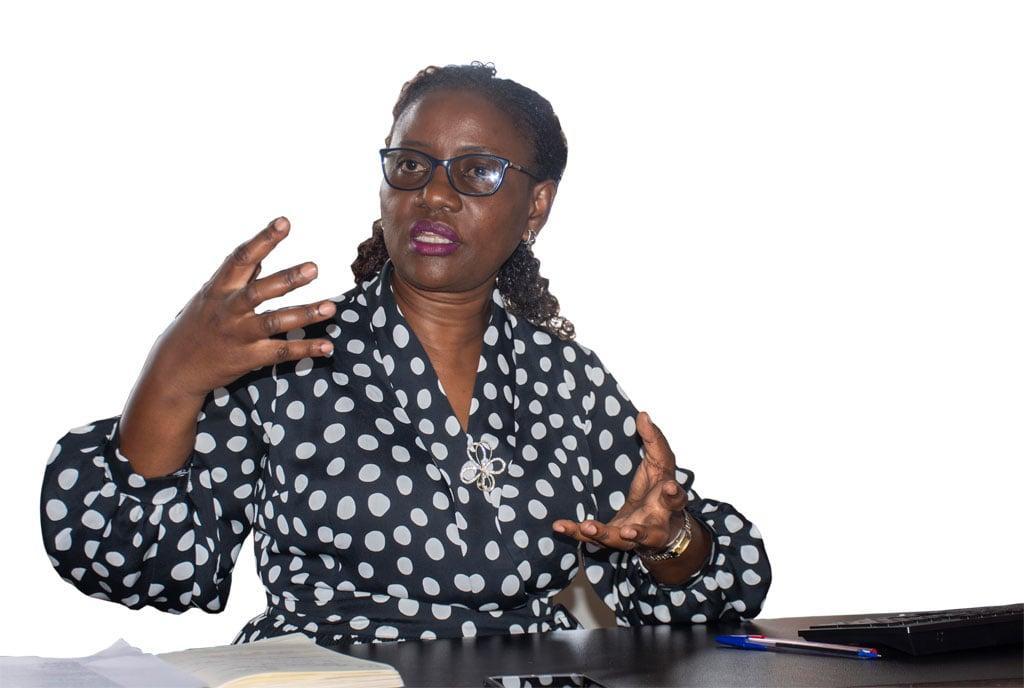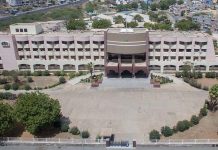Africa-Press – Cape verde. Ms Fatia Kiyange’s leadership journey is a testament to the transformative power of service, where she has over the years, not only offered support but has passionately advocated for the rights of the vulnerable in society.
Ms Kiyange is the executive director at the Center for Health, Human Rights, and Development (CEHURD), a non-profit research and advocacy organisation, dedicated to advancing health rights for vulnerable communities.
Her leadership journey
Her leadership journey began when she was still very young, as she was born as the first child to a teenage mother at 15.
“Being the firstborn automatically comes with the responsibility of looking after my younger siblings. Because my mother was young, I was raised by my grandparents and aunties. However, I grew up in a unique family setting, filled with so much love. My grandparents supported and loved my mother. They did not stigmatise her,” Ms Kiyange narrates.
Ms Kiyange’s mother failed to continue with her education, after giving birth to her. Despite this, her mother tenaciously fought to ensure that Ms Kiyange received a good education. She narrates that it was a “do or die” matter for her mother.
“I went to remote schools in my primary years, and that should show you that irrespective of where you’re studying, you can make it in life and reach your highest potential. It should also speak to policymakers; these schools are often neglected, but they should be supported and facilitated,” she asserts.
She went to Kitagobwa Primary School and sat for her Primary Leaving Exams at Kibuli Demonstration School and then went to Nabisunsa Girls for both her O-Level and A-Level. She then enrolled for a bachelor’s degree in Social Work and Social Administration at the Makerere University.
The course, according to Ms Kiyange, grounded her and thus set her up for success. It also aligned with her personal and social values, such as integrity, respect, and embracing diversity.
Ms Kiyange did her social work field placements at the National Association of Women’s Organisation in Uganda and later at Naguru Remand Home for juveniles, an experience that she says changed her life. While there she discovered, that not all the children in the remand home were juvenile offenders.
“Some of the children had simply been homeless, others had run to the streets because of ill-treatment at home. Most of the street children you see on the streets have a story. They also had a programme at the remand centre, where they would trace and reconnect children back to their families,” she recalls.
After finishing her course at the university, Ms Kiyange went on to do voluntary work, in various organisations, where she gained more experience on the issues that affect people in the community. She focused more on learning and skilling herself, as she believed, that money would eventually come in with experience.
Ms Kiyange then got her first employment opportunity in a company called Intertec Testing Services (ITS) pre-shipment inspection company, as the department supervisor. That was her first hands-on leadership role, where she led a team of six people. She then resigned after two years, to work at Hospice Africa Uganda, an organisation that provides holistic palliative care to patients with life-limiting and life-threatening illnesses.
“When I expressed my intention to leave, the head of the company then offered to give me a salary increment, but that did not change my mind and yet I was going to earn much less at Hospice. I loved my job, but it was not a human service organisation. I have always wanted to support the most vulnerable people, I felt something was lacking,” Ms Kiyange narrates.
She joined Hospice as an education secretary in the education department and was later promoted to education administrator.
“In any work setting when you notice somebody with a commitment to serve, as a leader you want to enhance that. You will want to grow them. Leadership is about growing others, and helping them realise their full potential,” she emphasizes.
Ms Kiyange worked at Hospice Africa Uganda for five years and spearheaded a couple of positive changes, one of them being, allowing social work students to do placement at the Hospice.
“Before that people told me that the only social worker they knew was the one who had worked as gate man. So I ensured that the clinical staff appreciate the value addition of social work in such a setting. I supervised the first batch of interns,” she says.
While there she was instrumental in creating a regional network to bring together the palliative care organisations in Africa, what is known today as the African Palliative Care Association (APCA), and was the first technical staff to join the organisation in 2005, as the training and standards officer.
This became her home for 14 years. She rose to become the programmes director. She also pursued a master’s degree in Social Sector Planning and Management at Makerere University then went on to pursue a master’s degree in Public Health, to be better qualified to serve in the health sector.
She then joined CEHURD in 2020 as the deputy executive director and then became the executive director in 2022, replacing the CEHURD founding director, Dr Moses Mulumba.
“I became an executive director following a well-researched leadership transition and recruitment process. I am grateful to him, the CEHURD board of directors, and the board of trustees for trusting my leadership since I joined the organisation,” she notes.
“Throughout my journey, I have formulated professional relationships, even on an international level which I hold so dearly to me. Many of these morphed into social relationships,” she adds.
Thanks to these relationships, Ms Kiyange’s job transitions have been smooth. She hasn’t faced challenges in seeking or applying for positions, as professionals in her network consistently recommend her for her strong work ethic, service, and significant contributions.
Achievements
Ms Kiyange’s career goal is to impact and improve the lives of the vulnerable a mission she believes she has and continues to achieve.
She also says she has nurtured and mentored leaders, especially young women in her various places of work.
“Last year, a young lady called Mackuline Atieno, the executive director of Kenya Hospices and Palliative Care Association, invited me to speak at her national conference. I was overjoyed because
I nurtured and mentored her,” she says.
She says for someone from a humble background, attaining high levels of leadership has been a blessing.
Challenges
Amid a fulfilling journey, she continues to face challenges. As a leader, Ms Kiyange says, you are forced to work for long hours. Where everyone else can afford to leave at five, the leader cannot just leave as there is always something to do. This in many cases interferes with family and social life.
“Also, people tend to think that leaders do not have any vulnerabilities or problems. As a leader they assume you have it all, so they never reach out to check on you and find out if you need any support, which is risky. It is probably worse for male leaders because men never engage, they never share,” she expresses, adding, “Self-care is therefore important for any leader. Leaders should be part of a variety of support groups, where they can meet other leaders every other time to debrief and refresh.”
As a woman leader, Kiyange found herself in situations where she has experienced insubordination or has not been taken seriously simply because she is a woman.
“It is important for women leaders, to detect such situations and handle them professionally,” Ms Kiyange advises.
Ms Kiyange also has a strong culture of learning. She says in the early years of her career, she focused on learning and making herself professionally better.
In the same breath, Ms Kiyange says she has thrived, in her field of work because did not put her focus on chasing money. She was instead more preoccupied with service to people and says money comes when you serve well.
Recommendations to fellow women
“First, it is important for you to define what you want where you want to go, and how far you want to go. I knew what I wanted very early and it influenced the decisions I took career-wise,” she says.
She also advises women to invest in good social and professional relationships and build support networks both professionally and socially, where they can share their vulnerabilities.
Ms Kiyange advises young leaders to embrace challenges, as these come with growth opportunities. Also, she adds, it is important for female leaders, to define their boundaries and limits, when it comes to dealing with challenges, unique to them as women.
“Last but not least, fight that internal fear of venturing into leadership. This is common in young women. Even I have had fears sometimes, but internally reflect on them and decide I will do it regardless,” she encourages.
About CEHURD
The Center for Health, Human Rights, and Development (CEHURD) was established 15 years ago and advances social justice and human rights in health systems focusing on the needs of the most vulnerable people. Its interventions cut across strategic litigation aimed at changing the health system; advocacy for health rights including laws and policies which are based on human rights; community empowerment on health rights; as well as knowledge generation.
For More News And Analysis About Cape verde Follow Africa-Press






